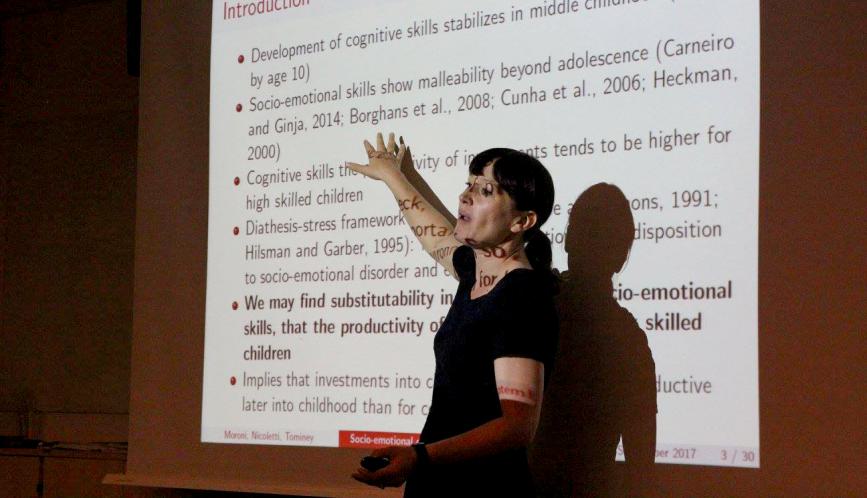ECI network member Emma Tominey is an Associate Professor at the University of York and a Research Fellow at the Institute for the Study of Labor Economics (IZA). Her research interests are labor economics and applied econometrics. She has worked on topics including youth unemployment and policy evaluation of government incentive programs. In more recent work, Tominey has studied the technology of skill formation, peer effects of female labor supply, and the role of shocks to family resources in the development of child human capital. She received her Ph.D. in Economics from University College London in 2010.
Describe your area of study and how it relates to current policy discussions surrounding inequality.
We know that there is strong persistence in income across generations. I have researched whether income is more productive for child outcomes in one stage of childhood than another and find strong interdependencies in the productivity of income across stages. I have also found an important role of the family and other peer groups in affecting the labour supply decisions of mothers with young children.
In another area of research, I’ve looked at how policy can improve the ability of households to insure themselves against income shocks. For example access to maternity leave can allow new mothers to react to negative household shocks by returning to work more quickly.
What areas in the study of inequality are most in need of new research?
There is a black box regarding the child production function and many open research questions to help us understand it. For example, what do parents understand of the child production function and do they know how their actions will affect their children? How much uncertainty do parents face regarding returns to their decisions and can policy help to reduce this uncertainty?
What advice do you have for emerging scholars in your field?
Try to tell the world something meaningful from your research. Identification is very important of course, but learning something from your work and contributing to important debates is crucial.



